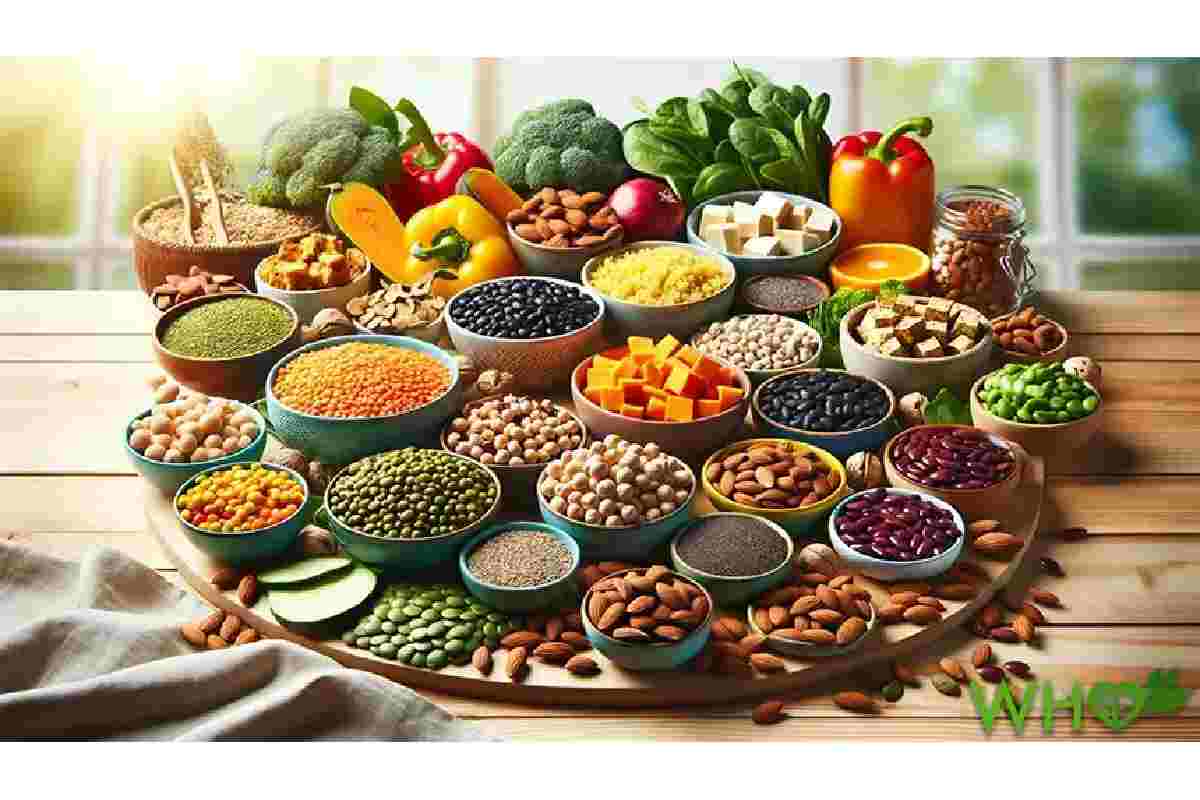Table of Contents
Vegetarian Protein Foods
wellhealthorganic high protein rich food for vegetarians to boost your health – Vegetarians frequently worry that their diets might not contain enough protein. Doctors and experts concur, though, that you can get all the nutrients you require from a well-planned vegetarian diet.
Protein: Consuming a diet rich in iron can help with weight loss, muscle growth, and satiety. As per general dietary rules and ladies ought to consume 46 grams of protein and men ought to consume 56 grams.However, depending on your age, weight, degree of activity, and other variables, this amount may vary.
Here is the list of vegan protein sources that you can without much of a stretch track down in your kitchen, worry don’t as well assuming you’re a veggie lover and worried about your protein consumption.
wellhealthorganic high protein rich food for vegetarians to boost your health
1.Soya Paneer (Tofu)
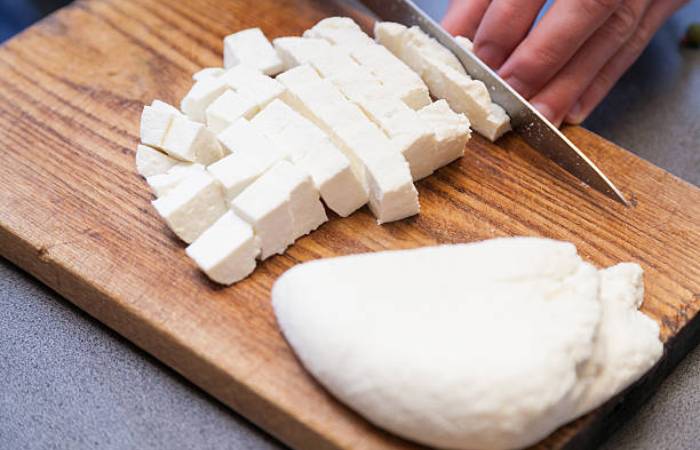
Like a fresh start, soy paneer takes on every one of the flavors you add to it. To make it seriously filling, you can mix it into your smoothie or add it to plates of mixed greens, sandwiches, noodles, and veggie bowls. Tofu is a decent wellspring of calcium that helps construct bones.
- Firm tofu – 12 grams of protein per (100 grams)
- Tofu – 8 grams of protein for every (100 grams)
2. Soya Milk
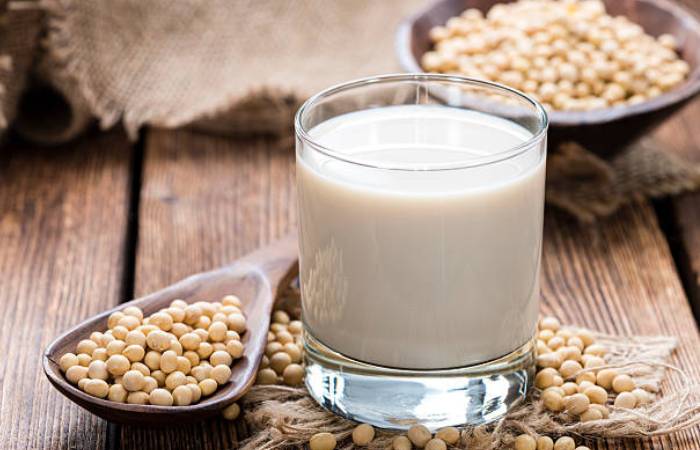
With eight grams of protein for every one-cup serving, soy milk is the main plant-based milk accessible that has a protein profile indistinguishable from that of cow’s milk. As almond milk just holds back one gram for every cup, soy milk is the most ideal choice in the event that you’re searching for protein.
Soya Milk – 8 grams of protein per 1 cup serving
3.Peanuts

It is astonishing to discover that peanuts don’t have a place with the nut family. They have a place in similar classification as food varieties like lentils, green peas, and soybeans. Peanuts are the result of the nut plant that creates underground.The nut plant doubtlessly started in South America, explicitly in Brazil or Peru. In South America, specialists have found 3,500-year-old stoneware molded like peanuts and adorned with peanuts.
Peanuts – 26 grams of protein for every (100 grams)
4.lentils
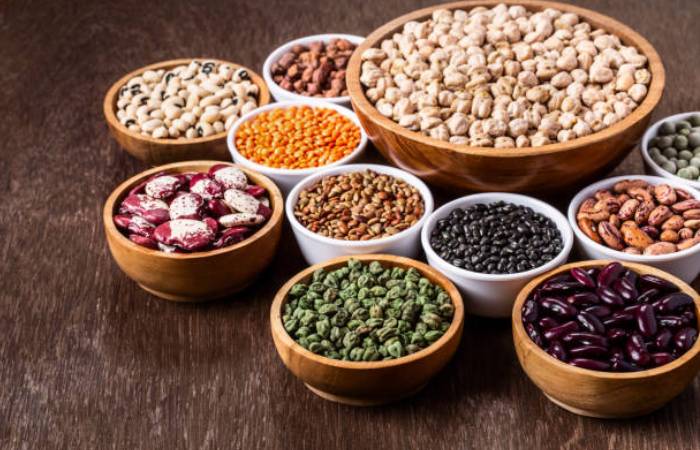
For veggie lovers, all lentils — beans and peas included — are a great wellspring of protein. An incredible, reasonable, high-protein, low-fat wellspring of protein is lentils. protein sources tracked down in various heartbeats.
- Dal: 8 – 9 grams of protein for each (100 grams)
- Chickpeas: 7 grams protein for each 100 grams
- Garden peas: 7 grams of protein for each 100 grams
- Beans: 7 – 10 grams protein for each 100 grams
Prepared beans: 5 grams protein for every 100 grams
5.Spinach

Palak is the Hindi word for Spinach.
With only half the calories, a cup of this leafy green vegetable contains as much protein as a hard-boiled egg. Boiling or preparing spinach raw can boost its nutritional value. You can keep the vitamin and calcium content while eliminating the vegetable’s bloating effect by boiling it evenly. You can have homemade Palak Paneer for lunch or dinner to effectively lose weight.
Spinach / Palak – 2.9 grams of protein per (100 grams)
6.Almonds

Almonds are an incredible wellspring of heart-sound fats, fiber, and protein. You can assist yourself with meeting your everyday supplement needs by remembering 10 almonds for your feast plan. You can keep a sound body weight by eating almonds.
- Almonds – 21 grams of protein for every (100 grams)
7. Garden peas
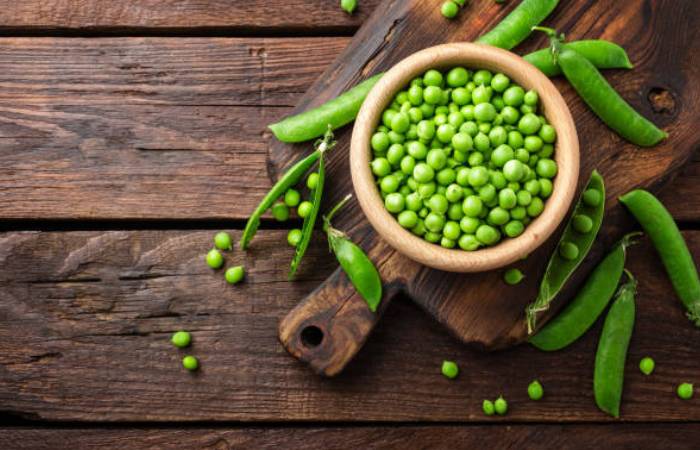
- Peas are eaten all around the world and have been a piece of the human eating routine for many years.
- Vegetables do exclude garden peas. They have a place with the group of plants known as vegetables, which incorporates those that produce seed-containing units. Vegetables incorporate beans, peanuts, chickpeas, and lentils.
- In one cup, peas also give you 100% of your recommended everyday confirmation of L-ascorbic corrosive. It furthermore stays aware of the strength and sufficiency of your protected system.Garden peas – 5 grams of protein per (100 grams)
8. Cashew
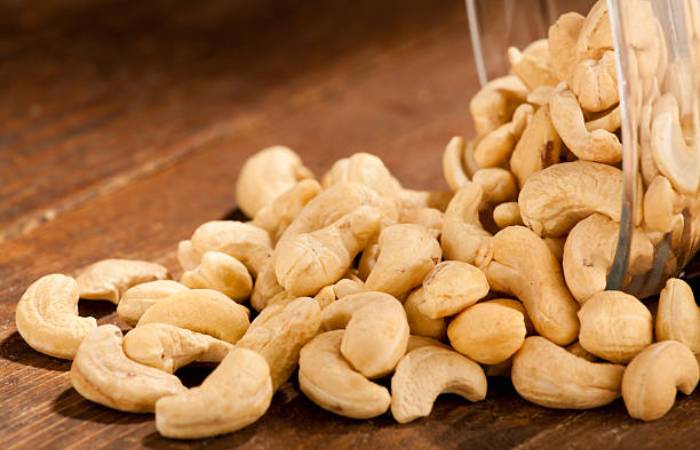
A quick snack that will increase your protein intake is cashews. Cashews’ protein and fiber both contribute to their ability to keep you full for longer, which reduces your inclination to indulge in afternoon vending machine treats.
Cashews are a great source of magnesium, which contains biotin, strengthens your immune system, helps with constipation, and supports cognitive function.
- Cashew – 18 grams of protein per (100 grams)

